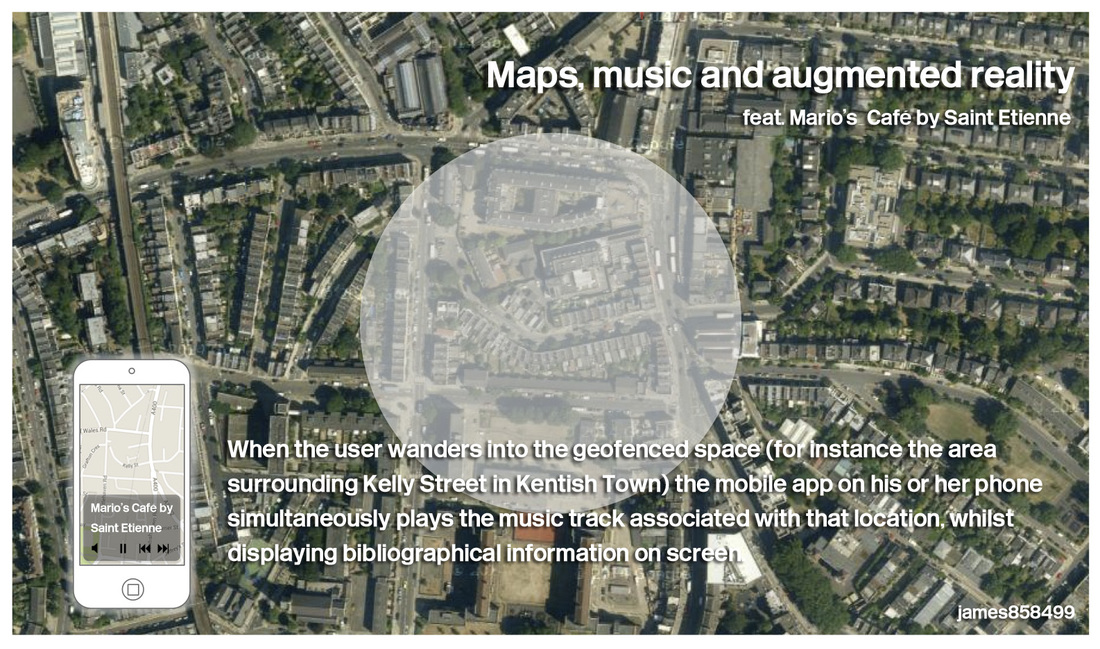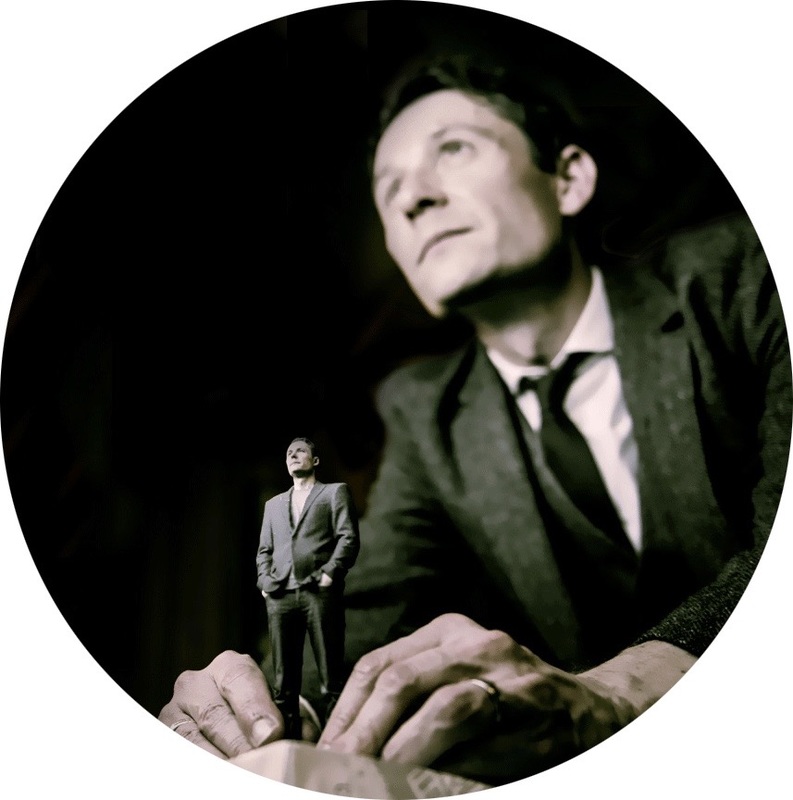|
I've been wondering what it would be like to wander through a city - London, most likely - listening to a playlist that's linked to the places you encounter. I think it might offer an interesting way of telling stories about the city, in the same way that you might read a book or watch a film or documentary. I suppose the difference here is that you would be closer, geographically at least, to the places where different events took place. And I wonder whether this might be achieved through a mobile app that provides some form of musically augmented reality? Although augmented reality is normally used to describe the technological manipulation of a visual plane, I'm tuning into the idea that it is concerned with any of the senses and am focusing on sound - or music, more specifically - to enhance and change our perception of what is around us. Here's how it might work. Within a dedicated urban space, individual songs would be attached to specific places and spaces: a street, a park, a pub, and so on. These songs would then be geofenced on a sound map, which would be accessed by the mobile app. This would be activated when the user enters that (real life) location. There would probably be satellites, code and other things like that involved. Here's what might happen in practice. You put on your trainers. You plug in your earphones, maybe setting the volume so that you can still hear a trace your surroundings. You activate the Location function within the settings on your mobile. You open the app. You take a left into Kelly Street in Kentish Town and the app automatically begins to play a song. You look down at your mobile and the app tells you that it's Mario's Cafe by Saint Etienne. A short description explains the song's relationship with the street you're walking. You ignore the details for the moment, step out of the rain and enjoy your musically-augmented reality, with a cup of tea and a bun. In order for this to work, I think each of the songs would need to tell a story about the particular part of the city to which is it geolocated. All of these songs, for instance, paint a rich and colourful picture about different places, whether in the past or present: White City by The Pogues, Sunny Goodge Street by Donovan, Victoria Gardens (and plenty of others) by Madness, Denmark Street by The Kinks, just for starters. I'm waiting for the call to start work on the'Saint Etienne's London' app.
4 Comments
Brilliant idea! Wouldn't it be fantastic to set aside a day for walking through the city, and seeing what you came across?
Reply
james858499
11/11/2014 07:52:31
'Curated': exactly what I was thinking.
Reply
15/11/2014 21:46:41
Hello there. Sorry to be late to the party here, but good ideas all around. I basically affirm everything you said here, particularly about this being more curated than crowdsourced. That is indeed growing tiresome in many instances.
Reply
james858499
25/11/2014 03:24:04
Glad to hear you have the technical know-how, Michael. Presumably there's still the issue of copyright, though? Unless of course there's a way of drawing the songs from a web-based resource where they are already being (legally) shared?
Reply
Leave a Reply. |
Search categories
All
I am a Lecturer in Digital Education (Education Futures), within the Centre for Research in Digital Education at The University of Edinburgh.
@james858499 [email protected] |

